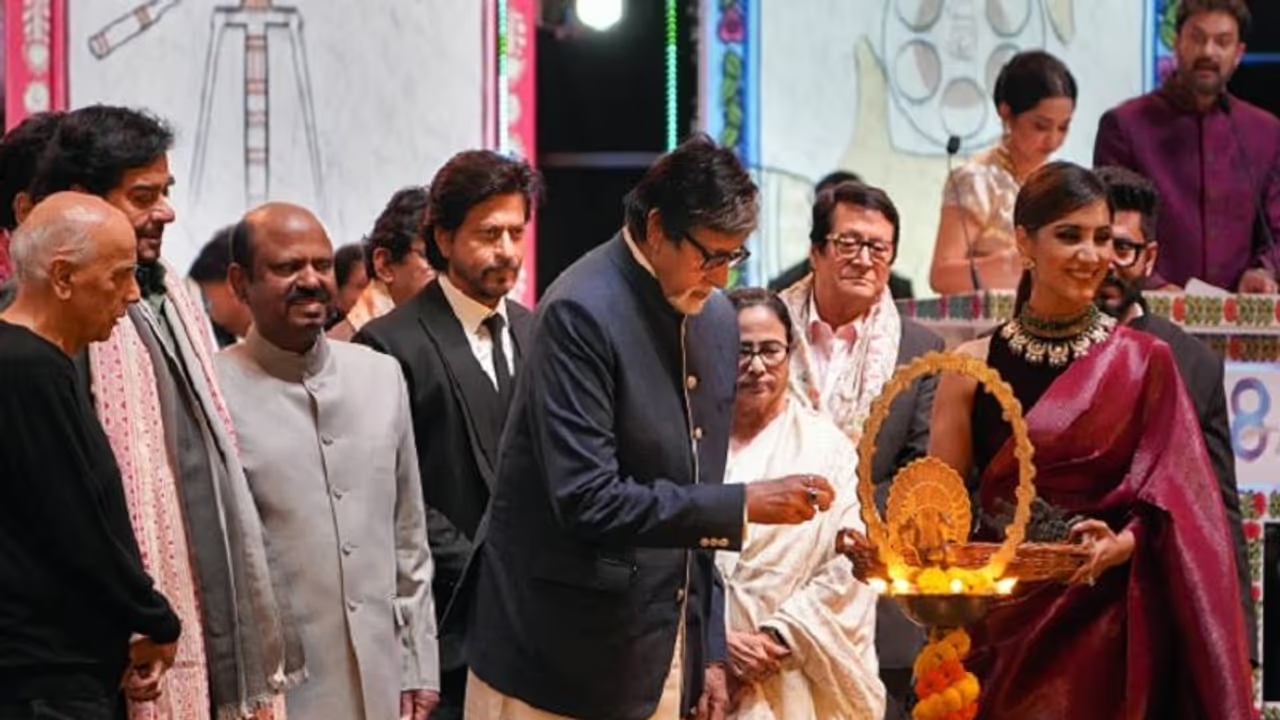The BJP accused TMC of not inviting renowned actor Mithun Chakraborty to the program even though he is from the state. Following that, the two parties are now engaged in a battle over Bachchan's remarks.
A war of words erupted between West Bengal's Trinamool Congress (TMC) and the Bharatiya Janata Party (BJP) after Bollywood actor Amitabh Bachchan talked about civil liberties and freedom of expression at the 28th Kolkata International Film Festival.

In a tweet, BJP leader Amit Malviya used a screengrab of the actor's speech and said, "Amitabh Bachchan's words couldn't have been more prophetic since they were spoken in Kolkata, with Mamata Banerjee on the dais."
Also read: Shraddha Walker murder case: Aaftab Poonawala moves Delhi court seeking bail; check details
"It is like holding a mirror to the tyrant, under whose watch India witnessed the bloodiest post poll violence," he further said. The BJP leader also accused West Bengal Chief Minister Mamata Banerjee of tarnishing the state's image.
Replying to this, TMC's Lok Sabha MP Nussrat Jahan said, "The signs of a TYRINNICAL RULE include banning movies, detaining journalists, and punishing common people for speaking the truth. CAPPING Freedom of Speech and Expression means just that."
For the past few days, the two parties have been engaged in a war of words over the film festival. The BJP accused TMC of not inviting renowned actor Mithun Chakraborty to the program even though he is from the state. Following that, the two parties are now engaged in a battle over Bachchan's remarks.
It can be seen that Amitabh Bachchan was invited as a chief guest at the 28th Kolkata International Film Festival. After speaking in Bengali, Big B shared his thoughts and said, "In 1952, Cinematographer's Act set out the structure of censorship as it stands today, upheld by the film certification board. But even now, and I am sure my colleagues on stage will agree, questions are being raised on civil liberties and freedom of expression."
"Since early times there has been a change in content. Subjects have varied. From mythological films to art houses to angry young men to the current brand of historical couched in fictionalised jingoism and moral policing the range has kept the audience reflecting on politics and social issues through single screens and OTTs," he added.
